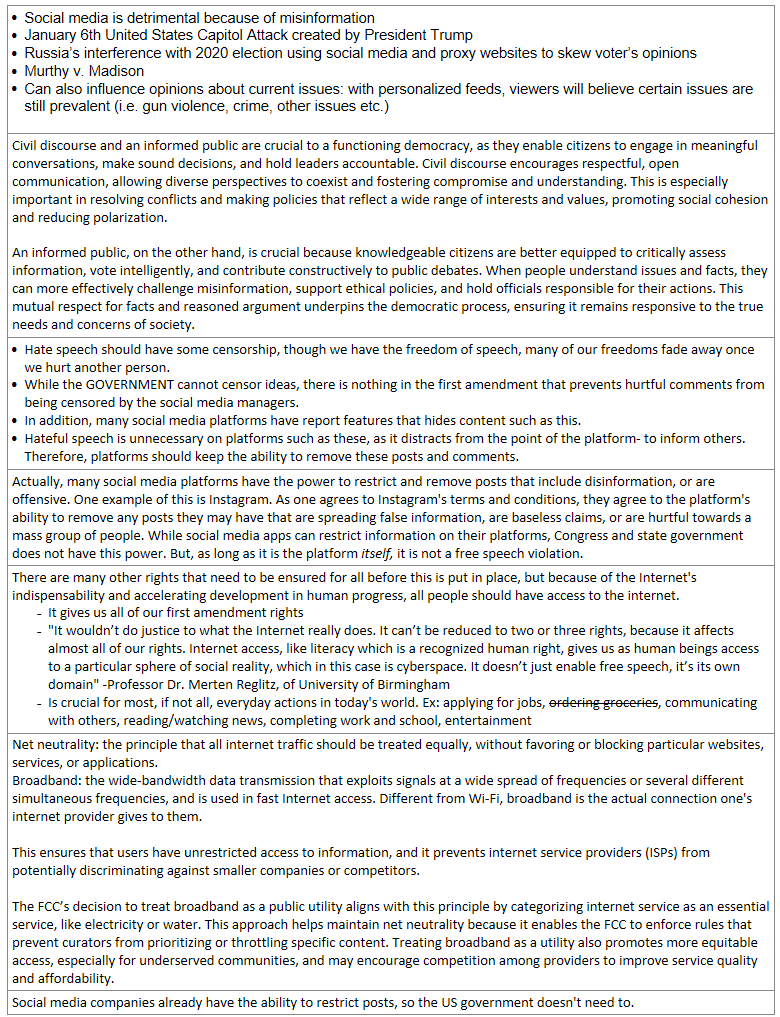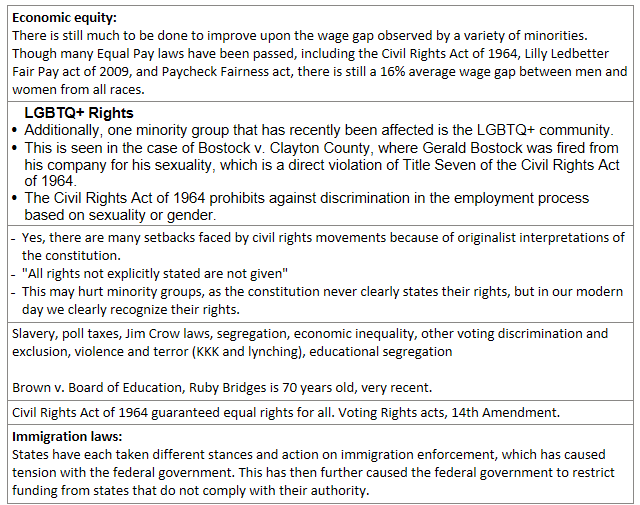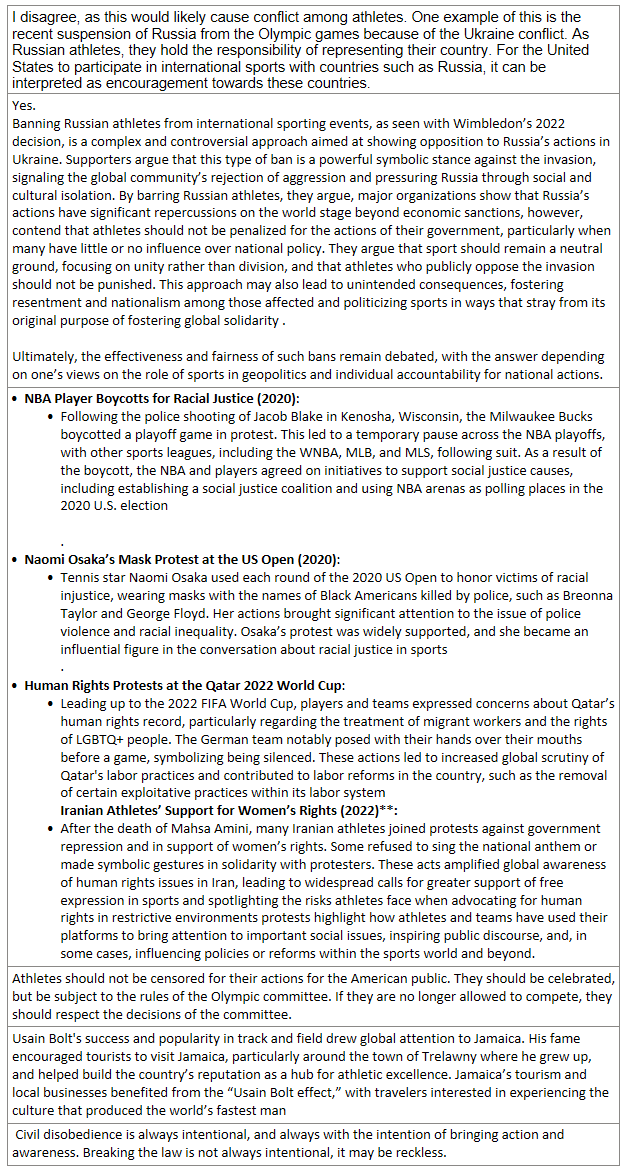We the People
|
Civil discourse and an informed public are crucial to a functioning democracy, as they enable citizens to engage in meaningful conversations, make sound decisions, and hold leaders accountable. Civil discourse encourages respectful, open communication, allowing diverse perspectives to coexist and fostering compromise and understanding. This is especially important in resolving conflicts and making policies that reflect a wide range of interests and values, promoting social cohesion and reducing polarization.
An informed public, on the other hand, is crucial because knowledgeable citizens are better equipped to critically assess information, vote intelligently, and contribute constructively to public debates. When people understand issues and facts, they can more effectively challenge misinformation, support ethical policies, and hold officials responsible for their actions. This mutual respect for facts and reasoned argument underpins the democratic process, ensuring it remains responsive to the true needs and concerns of society. |
|
Actually, many social media platforms have the power to restrict and remove posts that include disinformation, or are offensive. One example of this is Instagram. As one agrees to Instagram's terms and conditions, they agree to the platform's ability to remove any posts they may have that are spreading false information, are baseless claims, or are hurtful towards a mass group of people. While social media apps can restrict information on their platforms, Congress and state government does not have this power. But, as long as it is the platform itself, it is not a free speech violation. |
There are many other rights that need to be ensured for all before this is put in place, but because of the Internet's indispensability and accelerating development in human progress, all people should have access to the internet.
|
Net neutrality: the principle that all internet traffic should be treated equally, without favoring or blocking particular websites, services, or applications. Broadband: the wide-bandwidth data transmission that exploits signals at a wide spread of frequencies or several different simultaneous frequencies, and is used in fast Internet access. Different from Wi-Fi, broadband is the actual connection one's internet provider gives to them.
This ensures that users have unrestricted access to information, and it prevents internet service providers (ISPs) from potentially discriminating against smaller companies or competitors.
The FCC’s decision to treat broadband as a public utility aligns with this principle by categorizing internet service as an essential service, like electricity or water. This approach helps maintain net neutrality because it enables the FCC to enforce rules that prevent curators from prioritizing or throttling specific content. Treating broadband as a utility also promotes more equitable access, especially for underserved communities, and may encourage competition among providers to improve service quality and affordability. |
Social media companies already have the ability to restrict posts, so the US government doesn't need to.  |
Economic equity: There is still much to be done to improve upon the wage gap observed by a variety of minorities. Though many Equal Pay laws have been passed, including the Civil Rights Act of 1964, Lilly Ledbetter Fair Pay act of 2009, and Paycheck Fairness act, there is still a 16% average wage gap between men and women from all races. |
|
|
Slavery, poll taxes, Jim Crow laws, segregation, economic inequality, other voting discrimination and exclusion, violence and terror (KKK and lynching), educational segregation
Brown v. Board of Education, Ruby Bridges is 70 years old, very recent. |
Civil Rights Act of 1964 guaranteed equal rights for all. Voting Rights acts, 14th Amendment. |
Immigration laws: States have each taken different stances and action on immigration enforcement, which has caused tension with the federal government. This has then further caused the federal government to restrict funding from states that do not comply with their authority.  |
I disagree, as this would likely cause conflict among athletes. One example of this is the recent suspension of Russia from the Olympic games because of the Ukraine conflict. As Russian athletes, they hold the responsibility of representing their country. For the United States to participate in international sports with countries such as Russia, it can be interpreted as encouragement towards these countries. |
Yes. Banning Russian athletes from international sporting events, as seen with Wimbledon’s 2022 decision, is a complex and controversial approach aimed at showing opposition to Russia’s actions in Ukraine. Supporters argue that this type of ban is a powerful symbolic stance against the invasion, signaling the global community’s rejection of aggression and pressuring Russia through social and cultural isolation. By barring Russian athletes, they argue, major organizations show that Russia’s actions have significant repercussions on the world stage beyond economic sanctions, however, contend that athletes should not be penalized for the actions of their government, particularly when many have little or no influence over national policy. They argue that sport should remain a neutral ground, focusing on unity rather than division, and that athletes who publicly oppose the invasion should not be punished. This approach may also lead to unintended consequences, fostering resentment and nationalism among those affected and politicizing sports in ways that stray from its original purpose of fostering global solidarity .
Ultimately, the effectiveness and fairness of such bans remain debated, with the answer depending on one’s views on the role of sports in geopolitics and individual accountability for national actions. |
|
Athletes should not be censored for their actions for the American public. They should be celebrated, but be subject to the rules of the Olympic committee. If they are no longer allowed to compete, they should respect the decisions of the committee. |
Usain Bolt's success and popularity in track and field drew global attention to Jamaica. His fame encouraged tourists to visit Jamaica, particularly around the town of Trelawny where he grew up, and helped build the country’s reputation as a hub for athletic excellence. Jamaica’s tourism and local businesses benefited from the “Usain Bolt effect,” with travelers interested in experiencing the culture that produced the world’s fastest man |
Civil disobedience is always intentional, and always with the intention of bringing action and awareness. Breaking the law is not always intentional, it may be reckless.  |